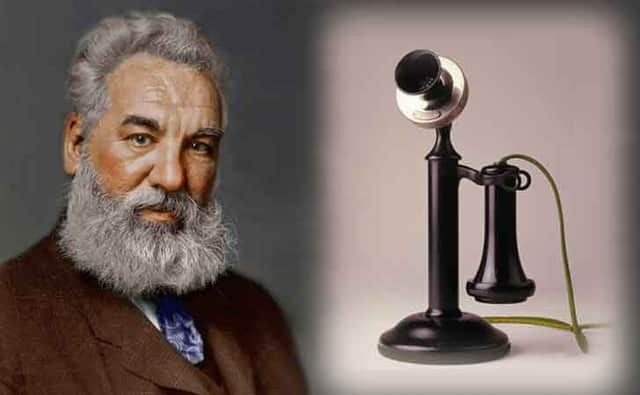Alexander Graham Bell: 8 words that changed the world


It was a few words that changed the world: “Watson, come here, I want to see you.
Spoken by Alexander Graham Bell to his assistant, Thomas, on March 10 1876, reportedly after the inventor spilled battery acid in his workshop, they signaled the creation of the modern telephone as we know it.
Advertisement
Hide AdAdvertisement
Hide AdAlthough several scientists around the world were working on a similar inventions around the same time, Bell was awarded the first US telephone patent for his device that turned speech vibrations into tiny electrical pulses.
Despite the enormity of his breakthrough at the age of just 29 and the founding of the Bell Telephone Company on , the scientist continued to dedicate himself to discovery in a diverse range of fields, from speed to genetics and flying machines.
Indeed, he refused to keep a telephone in his office and viewed it as something of a distraction to his work.For Bell, he could no more help inventing than thinking or breathing.
“I have got work to do,” he once said. “So much work on so many subjects that I want many more years of life to finish it all.”
Bell was born at 16 South Charlotte Street, Edinburgh, on March 3 1847, with his early interest in speech inspired by his mother, Eliza, who was deaf, and his father, Alexander, who lectured in elocution at Edinburgh Universit.
Alexander also devised the “visual speech” system of phonetic symbols which aided those hard of hearing to learn to speak.
After a spell in London, Bell emigrated from Scotland to Ontario aged 23 with his family after a tuberculosis outbreak in Edinburgh killed two of his brothers.
After teaching with his father, he opened the School of Vocal Physiology and Mechanics of Speech in Boston and later met his wife, Mabel, one of his pupils, who lost a large part of her hearing as a child.
Advertisement
Hide AdAdvertisement
Hide AdIt is said she was the greatest influence on his life with Bell certain that deafness could - and should be - eradicated.
He was also a stern and powerful opponent to sign language, believing it was a barrier to deaf people integrating in society, with his views still provoking controversy today.
The couple later settled in Cape Breton in Newfoundland.
Here, his estate, Beinn Bhreagh, or Beautiful Hill, by the village of Baddeck, still remains in the Bell family.
The nearby Bell Museum, a site of historic interest in Canada, is a temple to his extraordinary imagination and intellect and documents a life filled with experiments and discovery.
He was to experiment with speed, building a 60ft torpedo-hulled hyrofoil that was to set a record of 70.86mph in 1919.
Bell was to also lead building of the AEA Silver Dart, an aircraft that completed the first controlled air flight in Canada over the frozen waters of Bras D'Or near his home on February 1909, and genetics.
He became interested in sheep breeding believing that ewes could have larger litters if they had more nipples.
Experiments in sound and light continued his entire life, with Bell, who preferred to work through the quiet of the night, credited with the first experiments that were to lead to the creation of fibre optics.
Advertisement
Hide AdAdvertisement
Hide AdBell, whose name inspired the decibel unit of sound, died in 1922, and during his funeral at Beinn Bhreach, every telephone throughout the Bell System was silenced for two minutes.
The Scot was typically unassuming about the impact of his work, which altered society beyond recognition.
“What this power is I cannot say; all I know is that it exists and it becomes available only when a man is in that state of mind in which he knows exactly what he wants and is fully determined not to quit until he finds it.” he said.